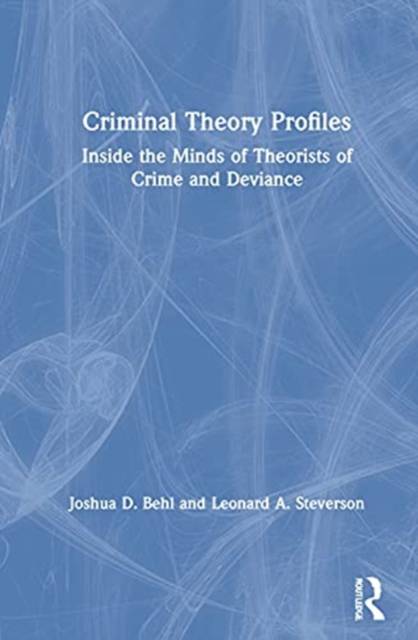
- Afhalen na 1 uur in een winkel met voorraad
- Gratis thuislevering in België
- Ruim aanbod met 7 miljoen producten
- Afhalen na 1 uur in een winkel met voorraad
- Gratis thuislevering in België
- Ruim aanbod met 7 miljoen producten
Criminal Theory Profiles
Inside the Minds of Theorists of Crime and Deviance
Joshua D Behl, Leonard A SteversonOmschrijving
This book brings to life the major theories of crime and deviance by presenting detailed profiles that help readers differentiate each theory and its major propositions by better understanding how, when, and by whom the theory was formed.
Criminology is based on strong theoretical foundations that attempt to answer the question of why people commit crime. Criminological theory is especially complex in that theorists come from a variety of disciplines including medicine, sociology, psychology, economics, and law. While not an exhaustive list of each theorist's works, nor an in-depth review of the empirical work that has been done on each theory, this text tracks the intellectual development of a theory by profiling the theorists who are responsible for the major ideas in criminological thought. By viewing the field in the context of the social conditions of the time and the personal histories of the theorists, students can better understand the intellectual history of each theory and the relationship between criminology and other fields, to grasp a better appreciation of how the science of crime and the study of criminals has evolved.
All chapters are organized with a brief overview of the theorist and their significant ideas, a biographical profile of the theorist, coverage of the theoretical developments and contributions of the theorist, a list of major works by the theorist, and a summary detailing the overall legacy of the theorist in the field. This book is ideal for courses on criminology, criminological theory, and criminal behavior.
Specificaties
Betrokkenen
- Auteur(s):
- Uitgeverij:
Inhoud
- Aantal bladzijden:
- 142
- Taal:
- Engels
Eigenschappen
- Productcode (EAN):
- 9780367478148
- Verschijningsdatum:
- 24/09/2021
- Uitvoering:
- Hardcover
- Formaat:
- Genaaid
- Afmetingen:
- 178 mm x 254 mm
- Gewicht:
- 443 g

Alleen bij Standaard Boekhandel
Beoordelingen
We publiceren alleen reviews die voldoen aan de voorwaarden voor reviews. Bekijk onze voorwaarden voor reviews.












